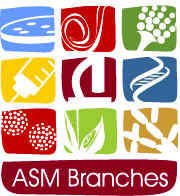|
| |
Mark Mozola, PhD |
|
| |
|
|
| |
Abstract |
|
| |
“Rapid, Automated Detection of Microorganisms in Foods Using the Soleris® System”
Soleris is an automated, growth-based platform for detection of broad classes of microorganisms in foods. A dilution of a test sample homogenate is introduced into the Soleris vial, which contains a non-selective or selective enrichment medium and a detection component for production and monitoring of colorimetric changes that occur over time as a result of microbial growth. The inoculated vial is placed into the temperature controlled Soleris instrument, and changes in color in the detection window are measured at regular time intervals and reported. These color changes are produced by the reaction of indicator chemicals with either acid or carbon dioxide produced by microbial metabolism in the Soleris vial. Soleris assays are adaptable to various testing approaches, including presence/absence, dilute-to-specification (semi-quantitative), and quantitative determinations using calibration curves. Numerous applications have been developed in the Soleris platform, including total aerobic count, coliforms, Enterobacteriaceae, yeast and mold, lactic acid bacteria, Staphylococcus aureus, pseudomonads, and others. Compared with traditional direct plating or most probable number procedures, the Soleris tests offer labor savings and generally a significantly more rapid result. New developments in basic platform design and specific Soleris applications will be discussed. |
|
| |
|
|
| |
Biography |
|
| |
Mark Mozola was educated at the University of Michigan where he received B.S., M.S., and Ph.D. degrees in Microbiology. His field of specialization was bacterial genetics; his dissertation research, conducted in the laboratory of Dr. David Friedman, involved the genetics of host factors regulating lytic growth and integrative recombination of bacteriophage lambda. Following his graduate studies, Dr. Mozola completed a postdoctoral fellowship at the University of Texas at Dallas where he worked on the genetics of structure and function of Pseudomonas aeruginosa exotoxin A under the direction of the late Dr. Royston Clowes.
In 1984, Dr. Mozola joined Integrated Genetics of Framingham, Mass., a predecessor company of GENE-TRAK Systems, as a Staff Scientist. In his early work there, he made contributions to the final stages of development and validation of the isotopic GENE-TRAK Salmonella assay, the first commercial DNA probe-based diagnostic test system. In 1986, he became the charter member of GENE-TRAK Systems' Technical Service Department, and later served as Technical Service Manager and as Manager of Business and Scientific Affairs. In 1992, Dr. Mozola joined Silliker Laboratories as Laboratory Director of their facility in Grand Prairie, Texas. He returned to GENE-TRAK in 1993 as Manager of Research and Development, and in 1995 assumed the position of General Manager of the company. Since 2001, he has served in the position of Vice President of Research and Development for Neogen Corporation
Dr. Mozola’s research interests are focused in the area of development and validation of rapid methods for the detection of foodborne pathogens. He is a member of the American Society for Microbiology, the Institute of Food Technologists, the International Association for Food Protection, and AOAC International. He is a Fellow of AOAC International and has served as a representative on the AOAC Research Institute Advisory Board and also as a member of the Statistics Working Group of the AOAC International Task Force on Best Practices for Microbiological Methodology. He is the author of numerous publications in scientific journals, and more than 60 contributed and invited presentations. |
|
| |
|
|
| |
|
|
| |
Fall 2010 Home |
|
|



